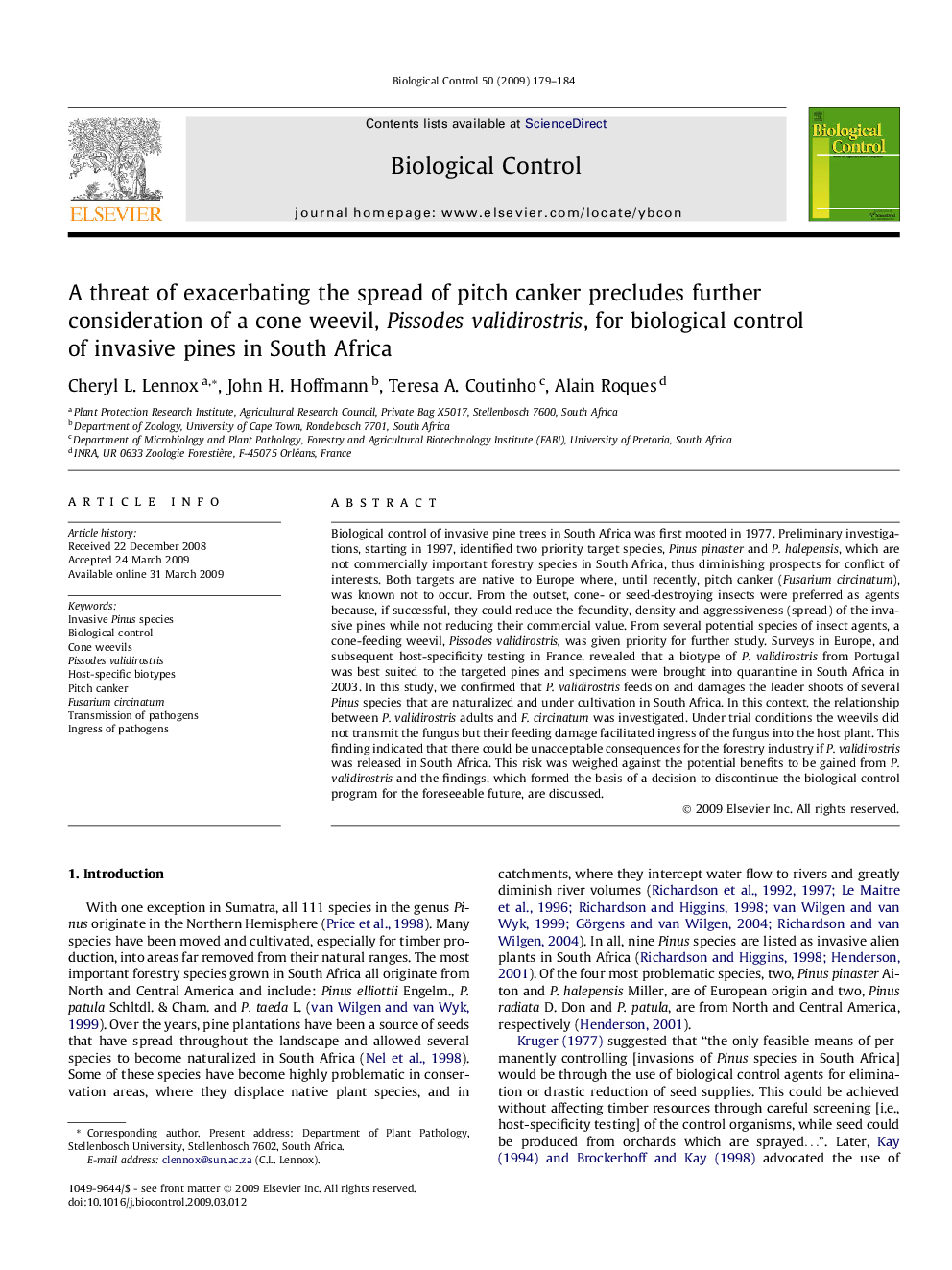| کد مقاله | کد نشریه | سال انتشار | مقاله انگلیسی | نسخه تمام متن |
|---|---|---|---|---|
| 4504646 | 1321103 | 2009 | 6 صفحه PDF | دانلود رایگان |

Biological control of invasive pine trees in South Africa was first mooted in 1977. Preliminary investigations, starting in 1997, identified two priority target species, Pinus pinaster and P. halepensis, which are not commercially important forestry species in South Africa, thus diminishing prospects for conflict of interests. Both targets are native to Europe where, until recently, pitch canker (Fusarium circinatum), was known not to occur. From the outset, cone- or seed-destroying insects were preferred as agents because, if successful, they could reduce the fecundity, density and aggressiveness (spread) of the invasive pines while not reducing their commercial value. From several potential species of insect agents, a cone-feeding weevil, Pissodesvalidirostris, was given priority for further study. Surveys in Europe, and subsequent host-specificity testing in France, revealed that a biotype of P. validirostris from Portugal was best suited to the targeted pines and specimens were brought into quarantine in South Africa in 2003. In this study, we confirmed that P. validirostris feeds on and damages the leader shoots of several Pinus species that are naturalized and under cultivation in South Africa. In this context, the relationship between P. validirostris adults and F. circinatum was investigated. Under trial conditions the weevils did not transmit the fungus but their feeding damage facilitated ingress of the fungus into the host plant. This finding indicated that there could be unacceptable consequences for the forestry industry if P. validirostris was released in South Africa. This risk was weighed against the potential benefits to be gained from P. validirostris and the findings, which formed the basis of a decision to discontinue the biological control program for the foreseeable future, are discussed.
Journal: Biological Control - Volume 50, Issue 2, August 2009, Pages 179–184